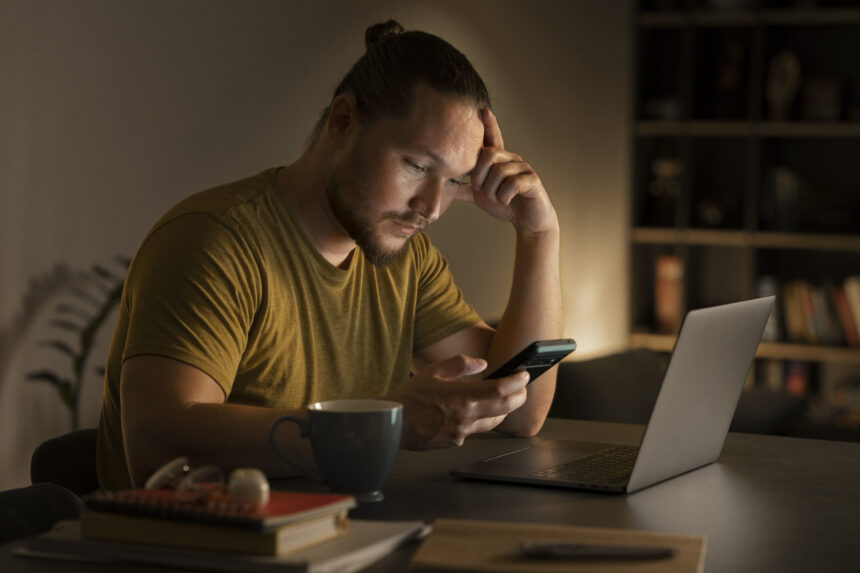Mental wellness isn’t a mood you chase—it’s a repeatable set of habits that keep your mind steady when life gets noisy. This guide turns best-practice advice into simple steps you can use today, with clean sources and a 14-day reset plan.
Quick facts
- Mental wellness refers to day-to-day functioning: mood regulation, focus, sleep, relationships, and coping skills.
- It’s distinct from mental illness; you can build skills for wellness whether or not you have a diagnosis.
- Small routines—better sleep, movement, and social connection—are consistently linked with better outcomes in population studies and clinical guidance.
- Seek professional help if you notice persistent low mood, loss of interest, intrusive thoughts, panic, self-harm thoughts, or substance misuse.
What mental wellness is (and isn’t)
Mental wellness is your capacity to think clearly, feel steadily, relate well, and recover after stress. It’s not constant happiness. It’s having tools—sleep, movement, boundaries, connection—to bring your nervous system back to baseline. That’s why simple, repeatable routines outperform complicated “hacks.”
How it differs from mental illness
Wellness skills help everyone, but they don’t replace clinical care. If symptoms are frequent or severe, talk to a clinician. Therapy and, when appropriate, medication can work alongside mental wellness habits to restore function faster.
12 habits that strengthen mental wellness
1) Put sleep on rails
Keep a consistent sleep window, dim screens late, and make your room cool and dark. Even a small improvement in sleep regularity often lifts mood and focus within a week.
2) Move most days (intensity optional)
Brisk walking counts. Aim for 150+ minutes a week and add two short strength sessions. If you’re starting from zero, do 10–15 minutes after your largest meal, five days this week.
3) Build steadier meals
Most meals: protein + fiber + color. This pattern steadies energy and reduces the mid-afternoon crash that can amplify anxiety and irritability.
4) Breathe on purpose
Use slow-exhale breathing (4 seconds in, 6–8 out) for two minutes before meetings, after difficult calls, or when trying to fall asleep. It’s the fastest reliable way to nudge your stress system down.
5) Reduce notification noise
Choose two check-in times for email and news. Turn off non-critical alerts. Attention is a finite resource; guarding it is core to mental wellness.
6) Make a daily “must list”
Each morning, write three must-dos and two nice-to-dos. A short, visible plan reduces overwhelm and lowers decision fatigue.
7) Schedule social contact
Brief, intentional contact (a call, coffee, walk) lowers perceived stress. Put two 15-minute touchpoints on your calendar each week.
8) Practice micro-recovery
Sprinkle small resets through the day: a five-minute walk, a glass of water, a stretch break, two minutes of breathing. Short and repeatable beats perfect and rare.
9) Journal a “worry box”
Write looping thoughts for five minutes. Label what’s controllable vs. not. Choose one next step for the controllables; let the rest be placeholders for later.
10) Boundaries that stick
Pick one boundary that targets your biggest trigger: no work email after 7 p.m.; meetings require agendas; decline recurring events that don’t need you. One strong boundary is worth more than five you forget.
11) Mind the substances
Alcohol and late caffeine can sabotage sleep and mood. Try alcohol-free weeknights and shift coffee to after breakfast. Re-evaluate in two weeks.
12) Know when to escalate
Persistent low mood, anhedonia, panic, intrusive memories, or thoughts of self-harm are signals to seek care. Mental wellness routines support recovery, but clinical care moves the needle faster for these symptoms.
Skills with the strongest evidence
- CBT-style tools: identify thought patterns, test them against evidence, and replace all-or-nothing thinking with balanced alternatives.
- Behavioral activation: schedule small, rewarding activities even when motivation is low; mood often follows action.
- Mindfulness-based practices: brief, regular sessions improve attention and reduce rumination for many people.
- Strength + cardio: consistent movement supports sleep, mood, and anxiety control—no elite workouts required.
A 14-day mental wellness reset (copy, paste, tweak)
- Day 1: Set a sleep window (±30 minutes). Put your phone to charge outside the bedroom.
- Day 2: Two minutes of slow-exhale breathing before bed and after lunch.
- Day 3: 15-minute walk after your largest meal. Make a three-item must list.
- Day 4: Strength “snack”: 2 rounds of 8–12 reps (squats to chair, wall pushups, hip hinges).
- Day 5: Social micro-plan: message two people; schedule one 15-minute chat.
- Day 6: Boundaries: disable one noisy notification channel; batch email twice daily.
- Day 7: Food baseline: protein + fiber + color at two meals.
- Day 8: Five-minute worry-box write, then one action on a controllable item.
- Day 9: 20-minute walk; 10 minutes of gentle stretching before bed.
- Day 10: Replace late caffeine with water or herbal tea; review sleep.
- Day 11: Try a 5–10 minute guided mindfulness session.
- Day 12: Declutter one digital area (email folder, home screen) to reduce friction.
- Day 13: Plan one small, rewarding activity for the weekend.
- Day 14: Review: keep two habits that fit your life; schedule them for next week.
Work, school, and family: making it real
Don’t add an hour-long routine to an already full day. Piggyback small habits on things you already do—breathing after you brush your teeth, a walk while a file uploads, stretching during video call audio checks. Mental wellness improves when recovery is embedded, not tacked on.
When to seek professional support
- Symptoms most days for two weeks (low mood, loss of interest, sleep disturbance, panic)
- Thoughts of self-harm, or using alcohol/substances to cope
- Trauma exposure with intrusive memories or avoidance
If any of these fit, contact your clinician, a licensed therapist, or local support lines. Skills and support work best together.
Related reads on Bulktrends
- The Impact of Stress: 12 Proven Ways to Find Relief
- The Science of Sleep: How to Get Better Rest
- Gut Health 101
- Health Trends to Watch
Authoritative sources
- WHO — Mental health (overview & promotion)
- NHS — Mental wellbeing self-help
- NIMH — Caring for your mental health
- APA — Evidence-based topics (stress, anxiety, depression)
- CDC — Mental health basics & coping
Educational content only, not medical advice. If you have severe or persistent symptoms, talk to your clinician or a licensed mental-health professional. If you’re in immediate danger, call your local emergency number.






